Debating Social Media: Is it a Platform for Expressing True Self?
VerifiedAdded on 2023/06/13
|5
|934
|250
Essay
AI Summary
This essay presents a debate on the topic of whether social media serves as a platform where individuals express their true selves. The debate includes definitions of key terms such as social media, post, and virtual persona. The arguments explore the notion of true self, the existence of individuals in social media, and social constructs that influence online behavior. The affirmative side argues that social media allows individuals, particularly teens, to express themselves more freely due to the reduced pressure of face-to-face interactions. The opposing side contends that social media facilitates the creation of fake personalities and can lead to negative behaviors. The essay concludes by suggesting that social media can only be a place for true self-expression if an individual is authentic in their real life. The essay references works by Boyd and Marshall to support its arguments.
1 out of 5
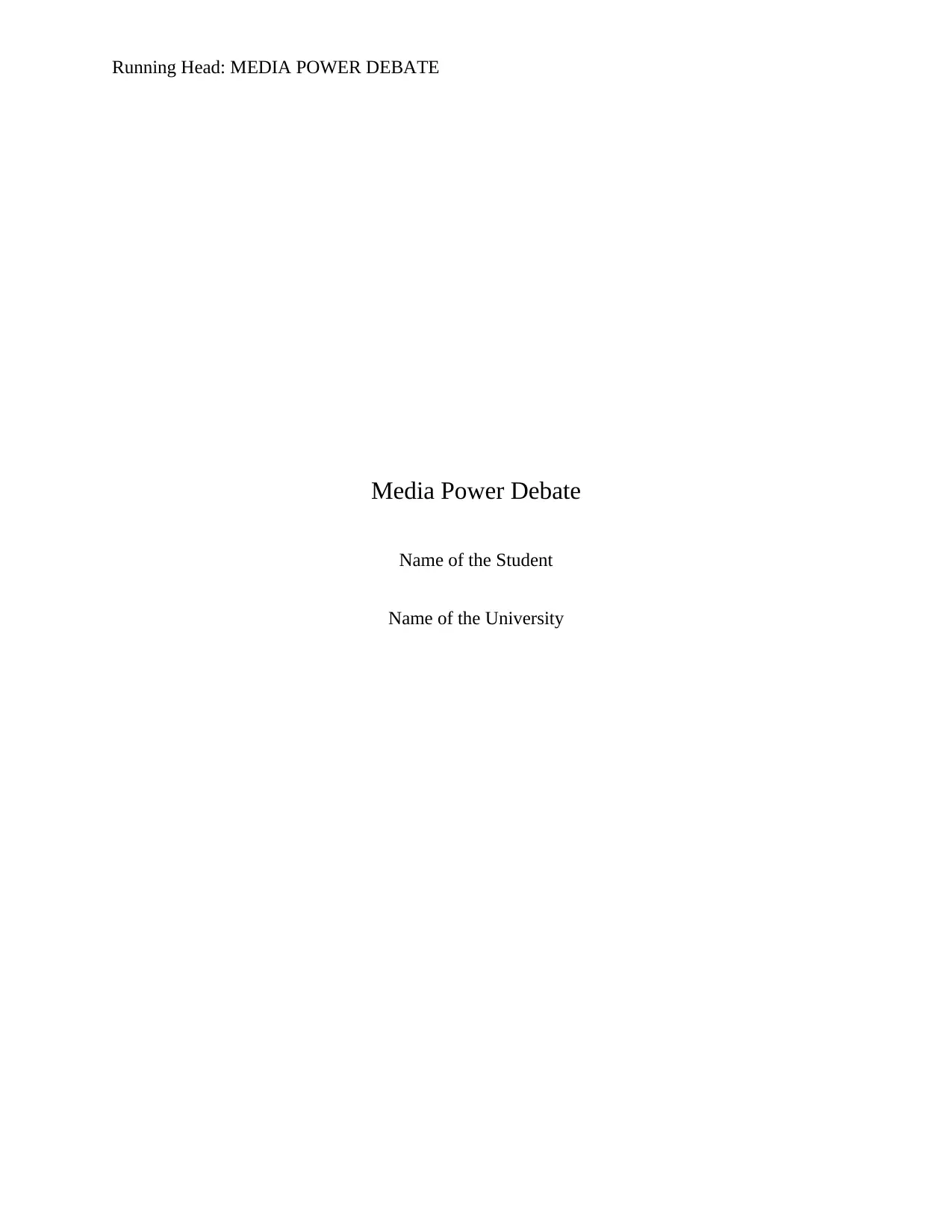
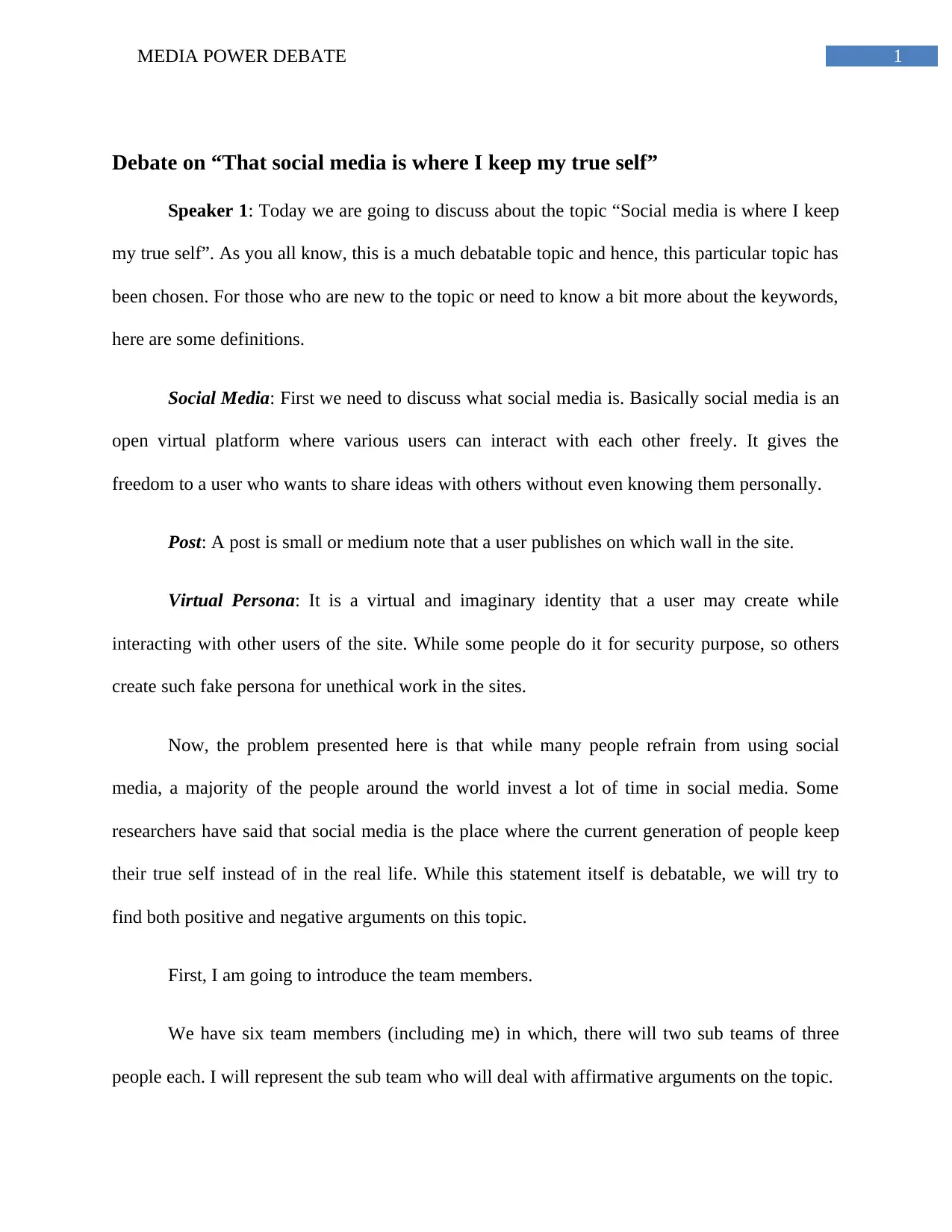
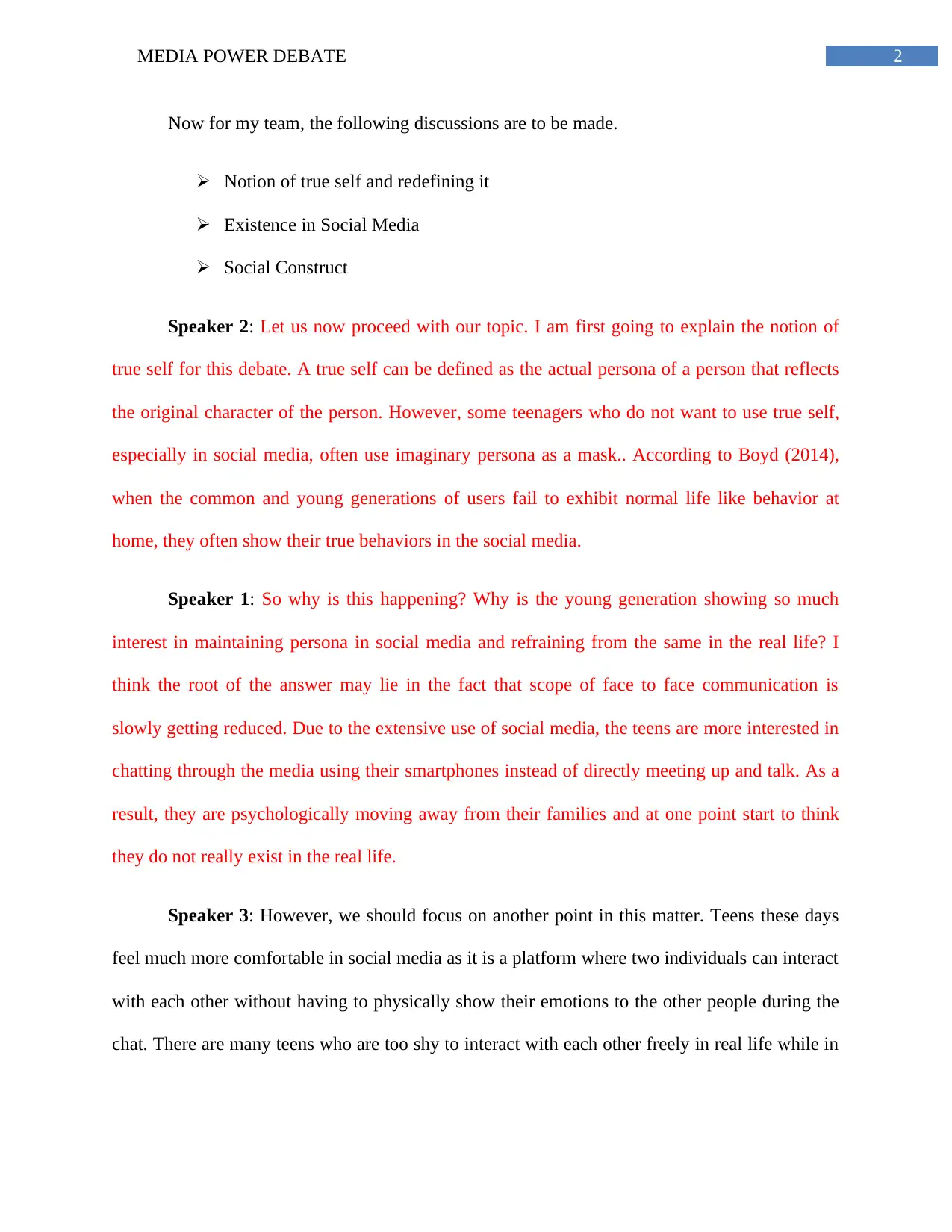

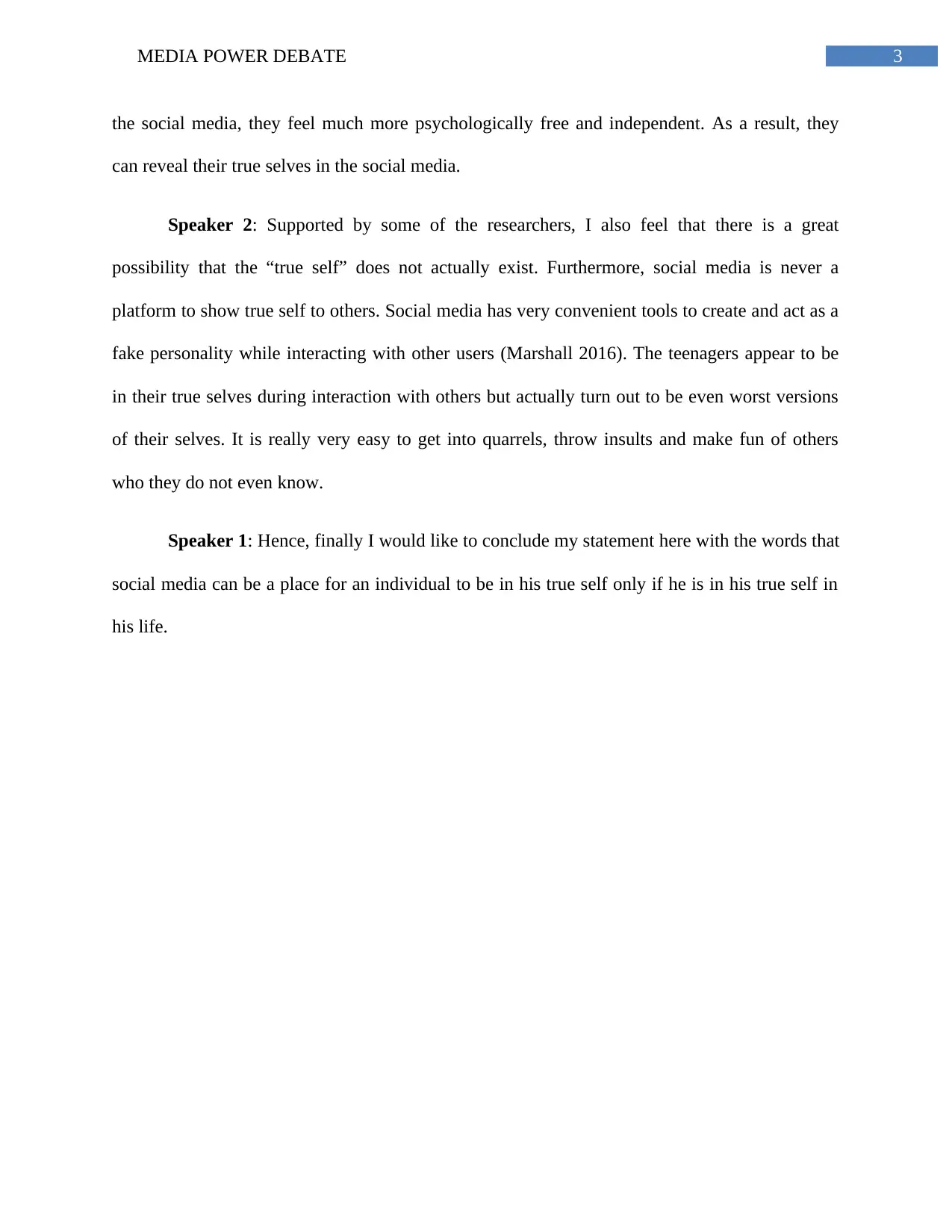
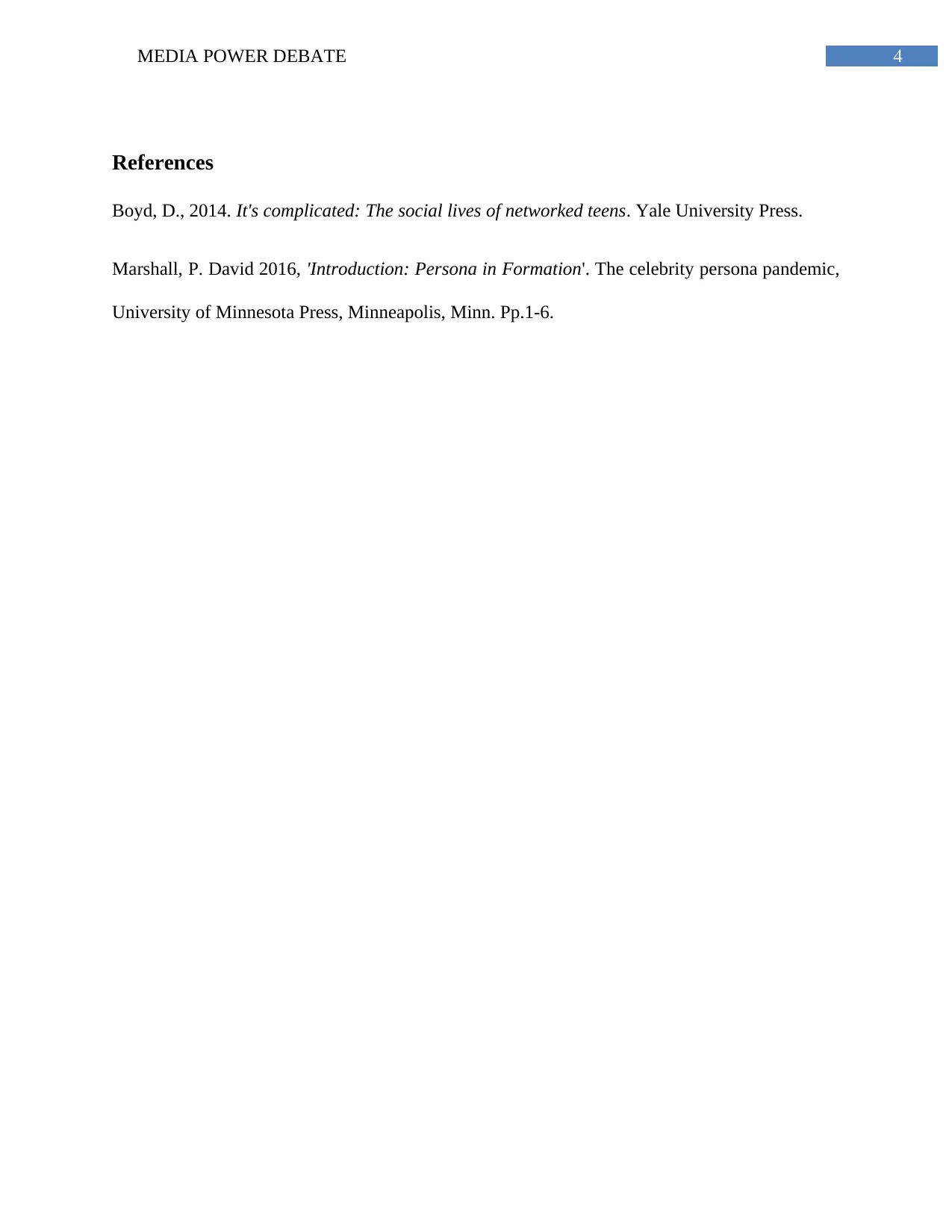


![[object Object]](/_next/static/media/star-bottom.7253800d.svg)